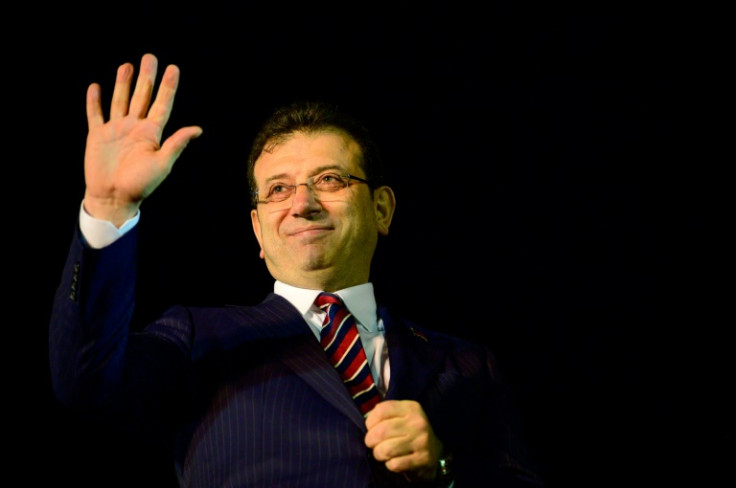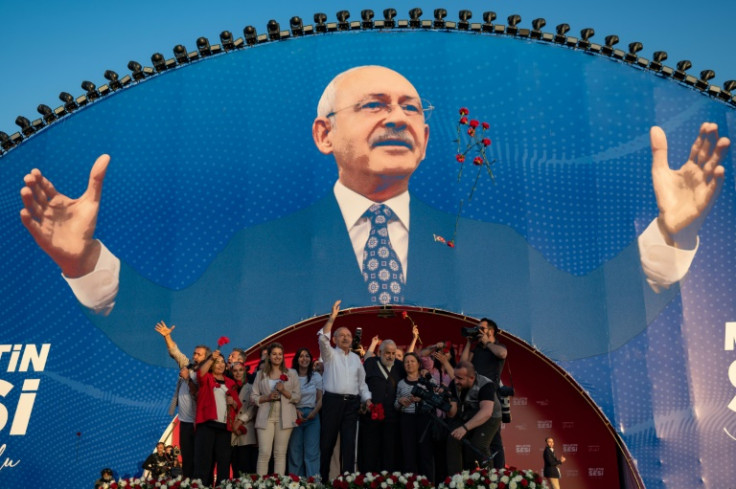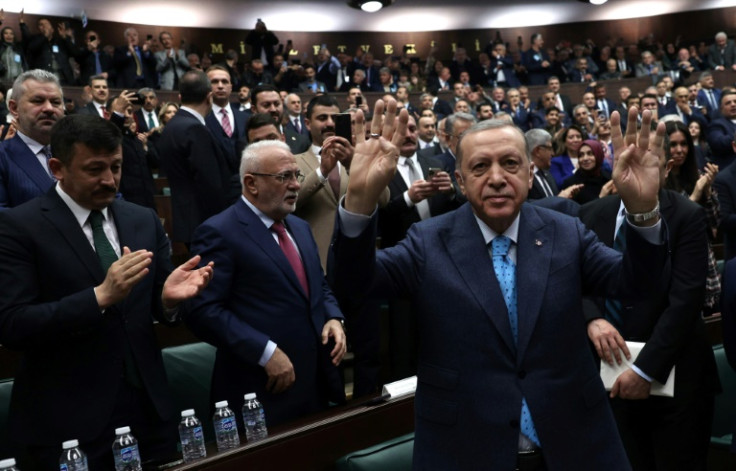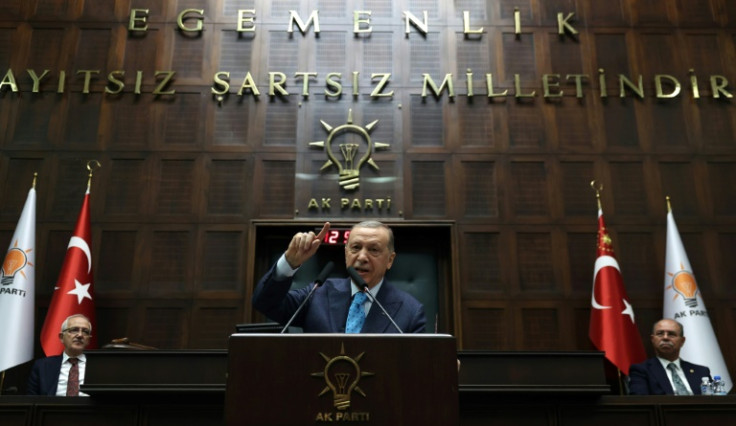Erdogan Sets Stage For May 14 Turkish Election

President Recep Tayyip Erdogan hinted Wednesday that he would bring the date of Turkey's most consequential election in generations forward to May 14 in a bid to catch his rivals off guard.
The announcement sets the stage for a vote that could either extend Erdogan's Islamic style of rule into a third decade or turn the country on a sharply more secular -- and potentially predictable -- course.
The 68-year-old stamped his mark as both president and prime minister by rolling back a fiercely secular tradition established by the mostly Muslim nation's founder Mustafa Kemal Ataturk one century ago.
He oversaw years of economic booms and busts as well wars and even a failed but bloody coup.
Erdogan's supporters revere him for giving a voice to the marginalised and creating a thriving new middle class in the nation of 85 million people.
But his opponents highlight an authoritarian streak that emerged in more recent years of his rule.
The country enters the election with much of its media under a government stranglehold and thousands of activists and politicians -- many of them Kurds -- languishing behind bars.
The NATO member's allies meanwhile remain uneasy about Erdogan's mercurial foreign policies -- most recently exemplified by his refusal to accept Sweden and Finland's bids to join the Western defence bloc.
Many analysts think the election is too close to call.
His secular opposition enters the campaign arguing about the makeup of their possible government and divided over which candidate to field against Erdogan.
Turkey's next general election is officially due to be held on June 18.
But Erdogan has a history of calling votes early to give his rivals less time to both campaign and prepare.
He delivered a campaign-style speech to his ruling party Wednesday, recalling the day Turkey held its first free election in 1950.
That May 14 vote was won by Adnan Menderes -- a prime minister who was toppled by a military junta in 1960 and executed a year later.
Erdogan was himself deposed and briefly jailed when he was mayor of Istanbul in the 1990s and often compares himself to Menderes.
"The late Menderes said on May 14, 1950, 'enough, the people will have their say', and emerged victorious at the ballot box," Erdogan said in televised remarks.
"Our people will give their answer to the (opposition) on the same day 73 years later."
The election date only becomes official once it is published in the government gazette -- something that might not happen for a few more months.
Erdogan enters the campaign with his approval ratings bruised by an economic crisis that saw inflation touch 85 percent late last year.
But the fractured opposition also stands in disarray.
Their best hope at one stage appeared to be Istanbul's popular mayor Ekrem Imamoglu.
The telegenic 52-year-old beat Erdogan's ally in landmark 2019 polls in which the opposition also swept to power in the capital Ankara and Turkey's third-largest city Izmir.
But a criminal court last month banned Imamoglu from politics for calling officials who annulled his initial 2019 victory "idiots".
Imamoglu has appealed and can still technically run for president.
But he would have to step down from office if he won and his conviction for slander was eventually upheld.
The risks around Imamoglu have turned the main opposition CHP party's leader Kemal Kilicdaroglu into the most likely candidate to stand against Erdogan.
But the 74-year-old former civil servant's failure to light up opinion polls has caused divisions within the six opposition parties now allied against Erdogan.
The six intend to hold their next discussions about a presidential candidate on January 26.
CHP's deputy parliamentary group chairman Engin Ozkoc pointed out that Erdogan had repeatedly ruled out the possibility of holding elections before June.
"Once again, you couldn't keep your word," Ozkoc fumed.
The polls will also challenge Erdogan's control of parliament.
His ruling party is currently in an alliance with a far-right group whose support has dwindled in the past few years.
"Polls show the opposition in the lead but momentum seems to be back with Erdogan," emerging market economist Timothy Ash wrote in a note to clients.
"I think the election really is too close to call, but I would never write Erdogan off in any election."



© Copyright AFP 2025. All rights reserved.





















